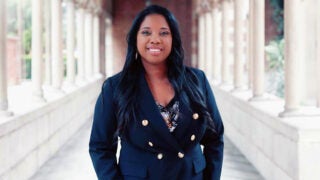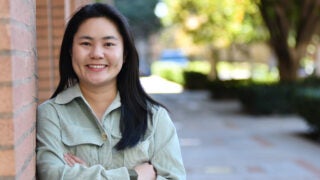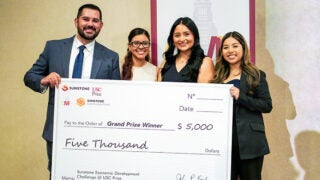COMMENCEMENT: Keshia Albrecht, a Bachelor of Science in Real Estate Development student, landed a job in Detroit analyzing affordable housing projects.
Policy/Law
News Listing
Doctoral graduate Brenda Eap landed a job at a Washington, D.C., political action nonprofit.
Four students won first place and $5,000 at the competition, which tasks students with helping local governments create jobs in their communities.
USC researchers investigate whether state reporting mandates are associated with clinicians’ likelihood of underdiagnosing dementia.
A recent USC study finds concerns about hospitals offering medical payment products may be overblown.
EARTH MONTH: The increase in climate-related disasters and pollution disproportionately affecting marginalized communities makes climate change a core social justice issue.
EARTH MONTH: The nation’s highest court is considering putting a hold on a clean air rule that requires upwind states to reduce pollution affecting their downwind neighbors. USC environmental law expert Robin Craig weighs in.
As the North Atlantic Treaty Organization turns 75, USC scholars examine its history and whether it should be strengthened, transformed or even retired.
USC Price experts bring together political scientists and real estate economists to examine one of California’s most persistent policy problems.
Domenika Lynch has built a distinguished career that has taken her to the power corridors of Washington.










